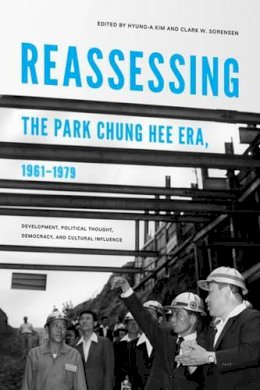
Reassessing the Park Chung Hee Era, 1961-1979
Hyung-A Kim
The Republic of Korea achieved a double revolution in the second half of the twentieth century. In just over three decades, South Korea transformed itself from an underdeveloped, agrarian country into an affluent, industrialized one. At the same time, democracy replaced a long series of military authoritarian regimes. These historic changes began under President Park Chung Hee, who seized power through a military coup in 1961 and ruled South Korea until his assassination on October 26, 1979. While the state's dominant role in South Korea's rapid industrialization is widely accepted, the degree to which Park was personally responsible for changing the national character remains hotly debated. This book examines the rationale and ideals behind Park's philosophy of national development in order to evaluate the degree to which the national character and moral values were reconstructed.
Product Details
About Hyung-A Kim
Reviews for Reassessing the Park Chung Hee Era, 1961-1979
Charles K. Armstrong
Global Asia
"The merely curious will find that Reassessing the Park Chung Hee Era tells the basic history of Park's nearly eighteen years as president . . . whereas serious scholars of Korean history will find the variety of interpretation, extensive bibliographic notes, and transliterations . . . a springboard for further study."
Nathan Hoskinson
Asian Affairs
"Overall, it provides a rich source of information on a variety of issues that are well explored. It can be used by students and scholars to simply understand the economic and political dynamics of South Korea during an authoritarian time, and can also be put in a comparative perspective with other Asian countries that went through similar political and economic developmental processes.”"
Sooh-Rhee Ryu
Asian Studies Review
"Overall, it provides a rich source of information on a variety of issues that are well explored. It can be used by students and scholars to simply understand the economic and political dynamics of South Korea during an authoritarian time, and can also be put in a comparative perspective with other Asian countries that went through similar political and economic developmental processes.”"
Sooh-Rhee Ryu
Asian Studies Review
